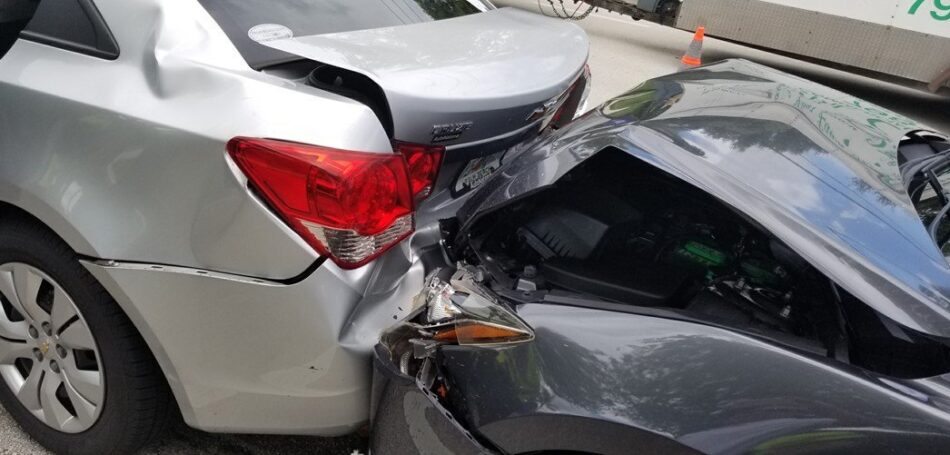A car accident can turn an ordinary day into a confusing one within seconds. Most people only focus on the immediate shock, but an experienced attorney looks at the deeper layers of the incident. Every small clue matters, and every piece of information can influence the final outcome of an insurance claim. When a case reaches a Charleston Car Accident Lawyer, they follow a detailed checklist that helps uncover truth, protect the injured person, and build a strong claim from day one.
In this guide, you will discover the five most important checks a legal professional performs after every crash. These steps may appear small at first, but they hold the power to reshape the entire case.
A Closer Look at the First Steps After a Crash
The hours after an accident are filled with anxiety, uncertainty, and confusion. People are not always thinking clearly, and important information can slip away. Lawyers understand how quickly stories change, evidence disappears, and memories fade. Their first task is to secure the facts before anything becomes unreliable.
A Charleston Car Accident Lawyer starts by gathering every possible detail about the crash. They look at dates, times, lighting conditions, and weather. They also study how the crash unfolded, what the drivers said at the scene, and how the police recorded the incident. This early investigation keeps the case grounded in verifiable truth rather than assumptions.
-
Condition of the Vehicles
Vehicle damage tells a story. Attorneys inspect how each part of the car was affected. They consider the location of dents, direction of impact, and type of collision. These observations help reveal what happened before anyone even gives a statement.
Important clues include:
- Depth of impact on bumpers
- Airbag deployment
- Broken headlights or taillights
- Deformed doors or panels
- Damage patterns that show speed or direction
These clues often help determine which driver was moving, slowing down, or turning. Insurance companies rely heavily on this evidence, which is why lawyers analyse it carefully.
-
Quality of Scene Documentation
Accident scenes change quickly. Vehicles get moved, traffic resumes, and debris gets cleared. If the scene is not documented early, valuable information disappears forever.
Lawyers check:
- Photos taken by the drivers
- Videos recorded by bystanders
- Positions of vehicles before removal
- Presence of traffic signs or signals
- Visibility at the time of the crash
Good scene documentation helps recreate what happened, especially when the involved drivers have conflicting stories. If photos or videos are missing, attorneys often reach out to nearby shops, homes, or intersections to locate helpful camera footage.
-
Truthfulness and Clarity in Statements
People often give rushed statements at the scene, sometimes influenced by fear, stress, or confusion. Attorneys examine every statement closely to detect inconsistencies.
They study:
- What the drivers told the police
- What witnesses reported
- What each person said at different times
- Whether the wording appears vague or confident
Even small differences in phrasing can create issues later in the claim. Lawyers work to align the facts and prevent misunderstandings that could harm the injured person’s case.
-
Medical Evaluation and Injury Evidence
Injuries are not always visible. Some appear hours later. Others worsen over time. A lawyer wants to know that medical care began early and continued properly.
They review:
- Doctor reports
- Diagnostic tests
- Emergency room notes
- Treatment timelines
- Medication and therapy recommendations
A clear channel of medical documentation is essential. It connects the injuries directly to the accident and prevents insurance companies from arguing that they came from another cause. Strong medical evidence also increases compensation for pain, discomfort, and long-term recovery needs.
-
Insurance Policy Depth and Hidden Clauses
Insurance policies look simple on the surface, but they often contain complex rules. Many drivers do not fully understand what their policy covers. Attorneys check both the victim’s policy and the other driver’s policy to discover every possible benefit.
They investigate:
- Liability limits
- Medical coverage options
- Exclusions
- Requirements for reporting
- Special conditions that affect compensation
This review helps identify every available source of financial support. In many cases, victims qualify for more coverage than they expect.
Why These Five Checks Matter
Each of these steps contributes to a clear and strong claim. Without them, insurance companies can easily create doubt. Doubt reduces compensation. A detailed legal review removes uncertainty and presents the facts in a clean, organised way.
These checks also help victims avoid common problems such as:
- Denied claims
- Reduced payouts
- Long delays
- Misinterpretation of injuries
- Arguments about fault
The attorney’s goal is to make sure the victim receives fair treatment, proper financial support, and honest evaluation from the insurance company.
The Hidden Value Behind a Lawyer’s Investigation
Most accident victims do not realise that long-term costs often exceed short-term bills. A lawyer calculates both visible and hidden losses. Some of these include:
- Future medical treatment
- Loss of workdays
- Reduced earning capacity
- Long-term pain
- Emotional stress
- Repair and rental costs
These are real damages that deserve compensation. A careful investigation helps ensure their value is recognised and included in the final claim.
Frequently Asked Questions
- Should I take pictures even if the police are documenting the scene?
Yes. Your own photos provide angles and details that police may not capture. They are useful when there is disagreement about how the crash occurred.
- Why is medical treatment so important after a minor crash?
Some injuries do not appear immediately. Early treatment creates a record that links symptoms directly to the accident.
- Can a witness strengthen my case?
Yes. A reliable witness can confirm your version of events. Attorneys always check witness statements for accuracy and credibility.
- How long should I keep accident-related documents?
Keep everything until your case is fully resolved. Lawyers use these documents to prove expenses and verify the impact of the crash.









